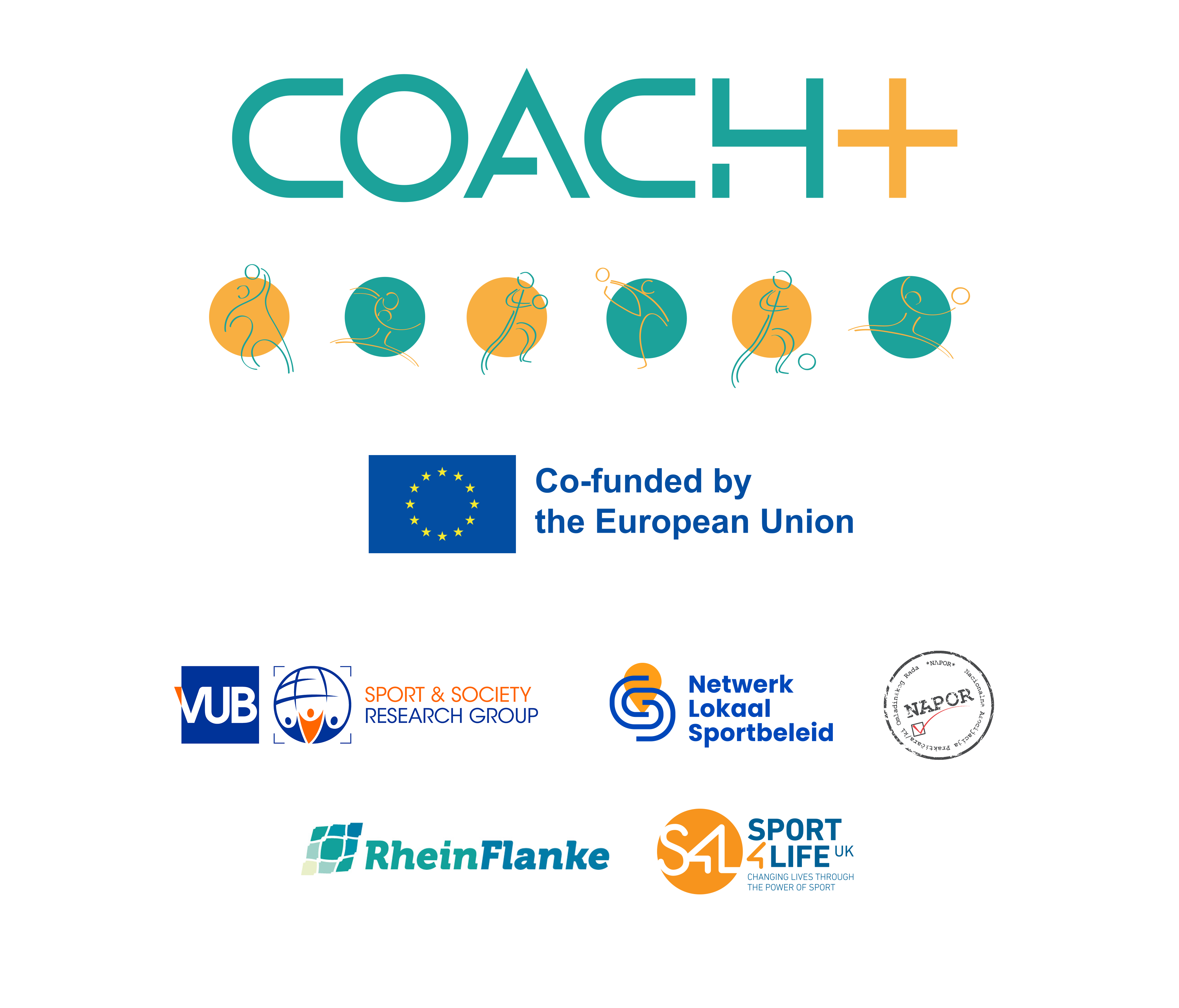
COACH+ - A youth work oriented ‘Sport Plus’ coaching online training course for sport-for-employability organizations working with young NEETs started on 1st of June 2022 and it will last 24 months.
The COACH+ project is a cooperative partnership, co-funded by the Erasmus+ Programme of the European Union and coordinated by the Research Group Sport & Society of the Vrije Universiteit Brussel (BE) with input and expertise from Rheinflanke GGMBH (DE), Sport 4 Life (UK), NAPOR (RS) and Netwerk Lokaal Sportbeleid (BE).
General objectives are:
- to increase the competence of sports coaches to deliver youth work based Sport Plus sessions in SfE (sport-for-employability) organizations that work with young NEETs
- to optimize the effectiveness of sport in Sport-for-Employability (SfE) organizations that work with young NEETs by including youth work principles and practices.
Specific objectives are:
- to develop a comprehensive and user-friendly online training course for Sport Plus coaching methodology, drawing on good practice from youth work, that can prepare sports coaches to use sport as an experiential learning context to increase employability (soft) skills for young NEETs.
- to test the relevance and effectiveness of the training course with students in sport and movement sciences and sports coaching and in-service sports coaches involved in Sport-for-Development (SfD) programs.
- to optimize the impact and dissemination of the training course at EU level.
The objective of the COACH+ project is to increase the competence of sports coaches to deliver youth work based Sport Plus sessions in Sport-for-Employability (SfE) organizations that work with young NEETs. For that purpose, a comprehensive and user-friendly online training course for Sport Plus coaching methodology (MOOC), drawing on good practice from youth work, will be developed. The partnership consists of 5 organizations, each working within a particular sector: that is, the academic sector including a sports coach educational institute; social (SfE) sector (2 organizations); local sports sector and youth work in general.
Work plan
The first phase, with a focus on the first part of this phase (i.e., ‘preparation’). Most of the tasks are aimed at getting an in-depth understanding of what has been published regarding the underlying theories in relation to (the development of) the most relevant skills through youth work; regarding general youth work principles for experiential learning practices with young NEETs and having more insight in similarities and/or differences between documented approaches in youth work and SfD targeting employability of young NEETs. These insights then serve as the preparation for the second part of this phase (i.e., ‘initial development phase’). The tasks are aimed at developing a comprehensive training course including a description of youth work principles that can prepare sports coaches to use sports as an experiential learning context to increase employability (soft) skills for young NEETs. It should also lead to an understanding of how these principles can be implemented in a sport setting and a logic of how to use the course to train sports coaches in a user-friendly and accessible way.
The second phase (i.e., ‘testing and final development’) is aimed at testing the relevance and effectiveness of the training course with university students in sport and movement sciences and sports coaching and in-service sports coaches involved in SfD programmes, as well as finalizing the training course based on the test results.
The third and final phase (i.e., ‘dissemination’) is intended to maximize the impact of the project’s outcome by various external communication and dissemination activities to inform 4 types of target group categories (i.e., the group that works directly with young NEETs in a SfE (or SfD) context; educators responsible for the formation of sports coaches or youth workers in SfE (SfD); those working in (or coordinating) SfE (SfD) organizations but not directly involved in the sports delivery and other relevant stakeholders).
Activities:
Meeting with in-depth/ focus group interviews with youth workers on their approaches to facilitate soft skill development of young NEETs – the meeting was held in Novi Sad in NAPOR offices on the 12th of October 2022.
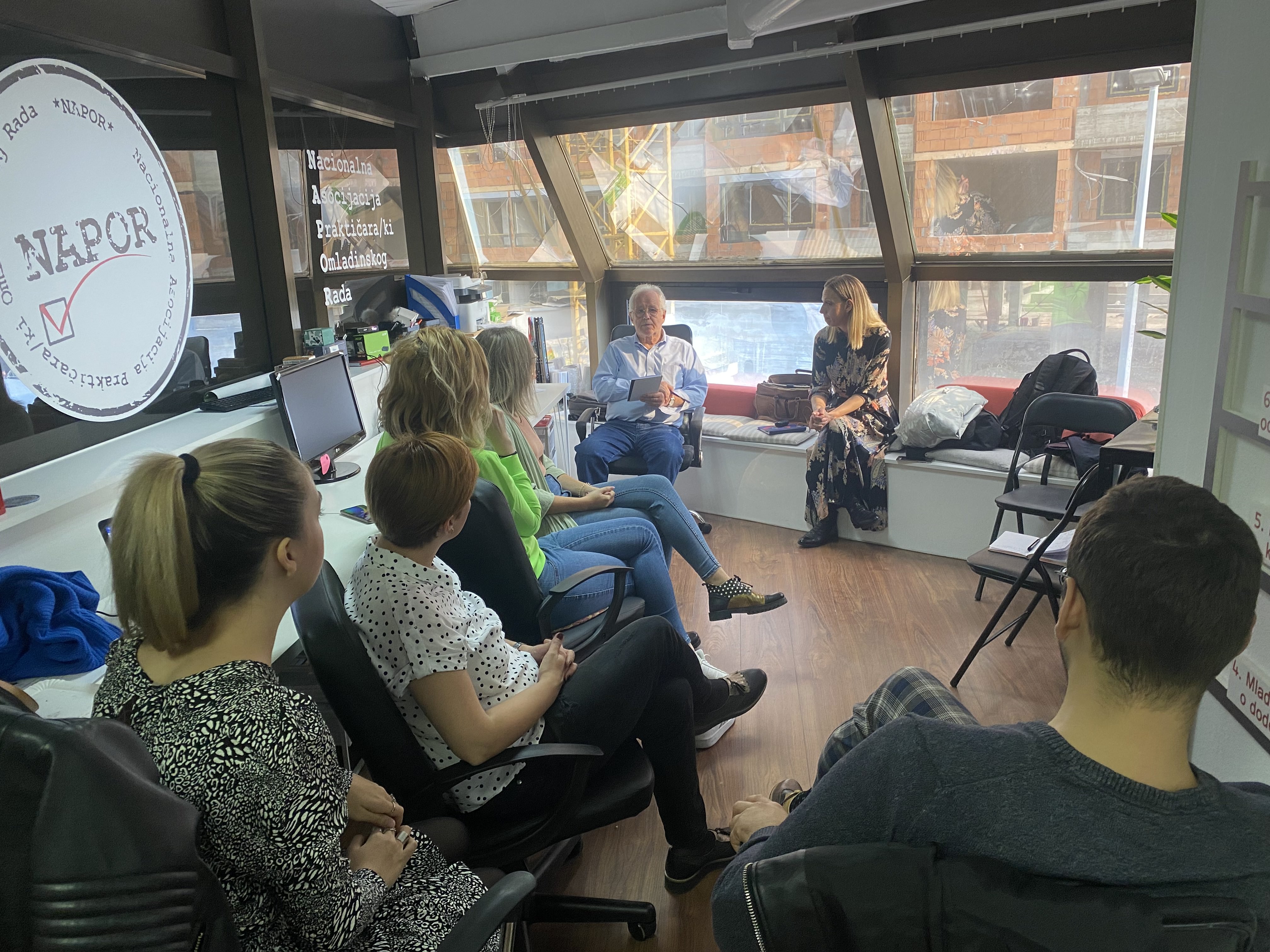 |
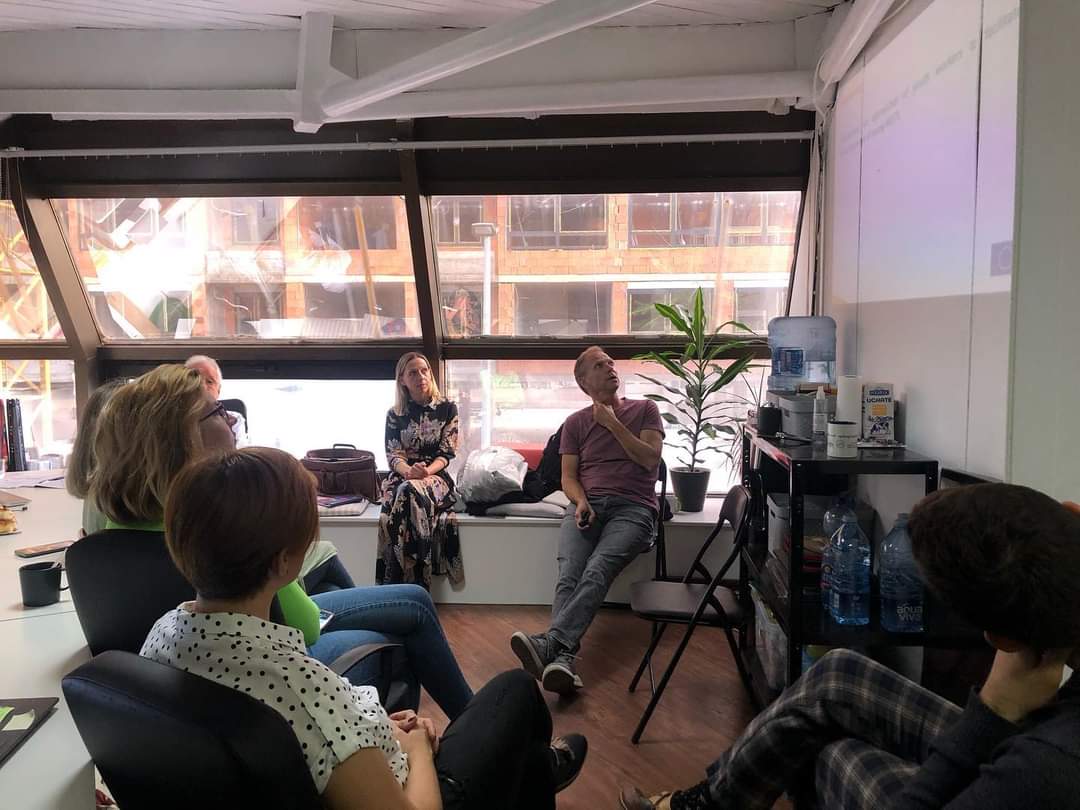 |
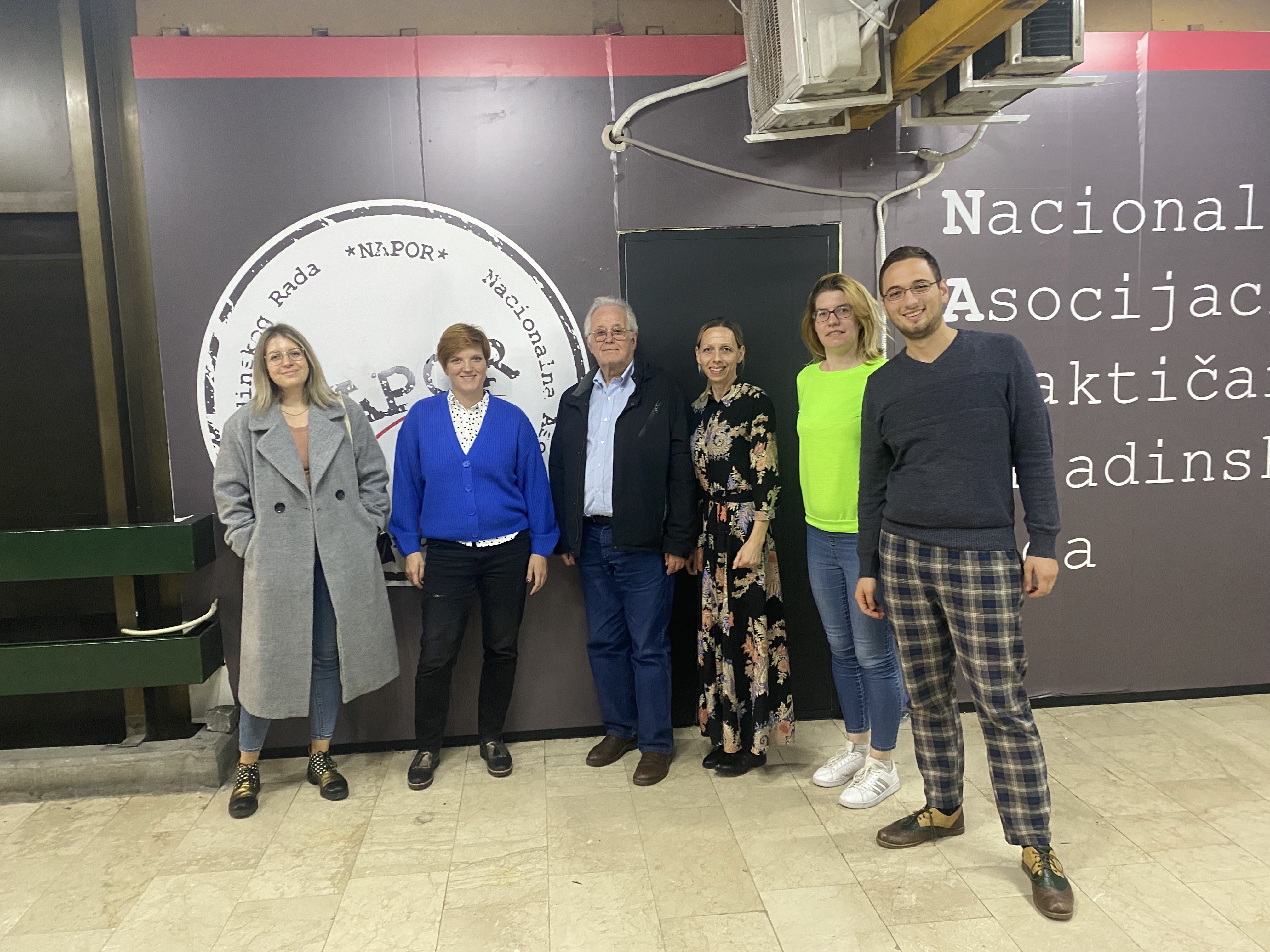 |
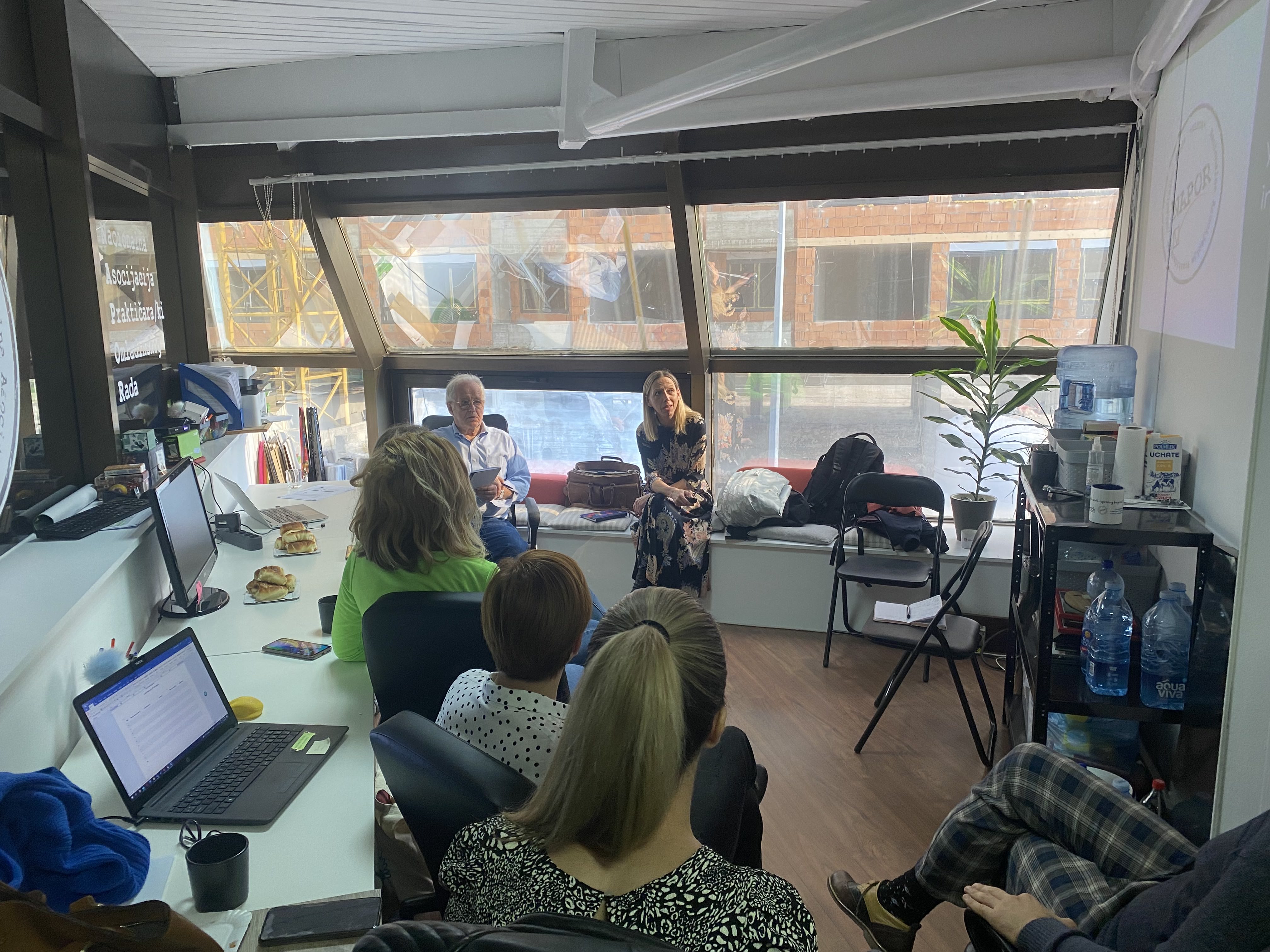 |
Literature review - analysis of academic and practice-oriented publications on youth work approaches of experiential learning practices aimed at employability (soft) skill development with young NEETs.
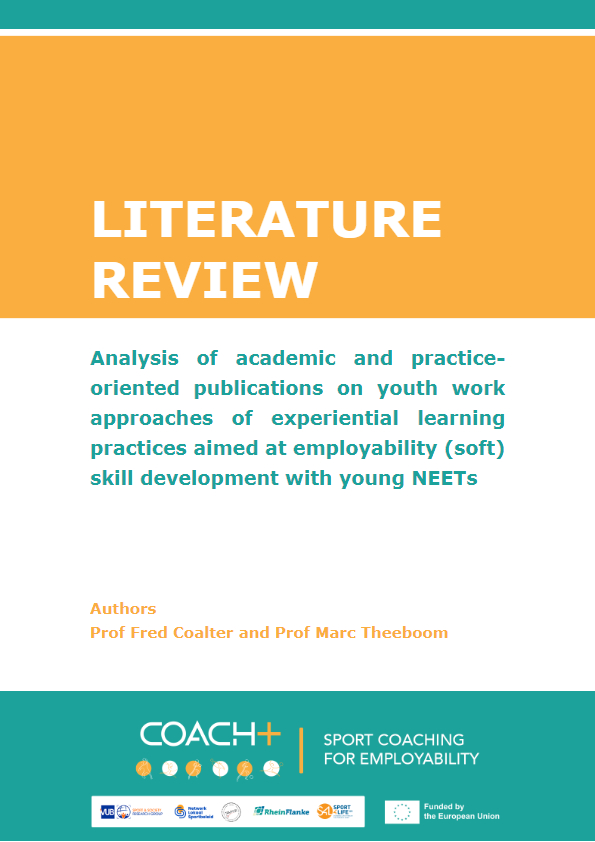
To provide the basis for this project literature review was made which explores the nature of youth work and youth work principles, includes case studies of youth work practices and processes and examines the similarities and differences with sport for employability programmes. The issues raised in this literature review will provide the basis for the workshops, interviews and case studies which will form the basis of the research.
To complement the literature review we wished to identify illustrative case studies of organizations and programmes which seek to combine sport for development with youth work practices. In doing so we hoped to contribute to the process of establishing an inventory of organizations that have published practice-oriented material on the topic and use this inventory to establish an online Community of Practice with which to interact during the course of the project.
In this context NAPOR produced three international case studies. These are, a Serbian organization Grupa 484 which deals with immigrants and refugees; a UK organization, Salaam Peace, which is a community engagement organization that uses sports and social education to bring people from diverse backgrounds together and a Brazilian organization, the Guga Kuerten Institute (IGK) - a non-profit civil organization that aims to ensure opportunities for social inclusion for children, adolescents, and people with disabilities.


